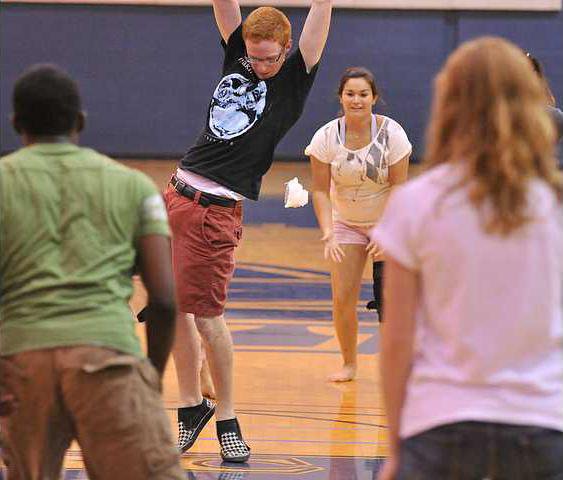Nicole Ito, a rising senior at Ravenwood High School in Brentwood, Tenn., already knows English, Japanese and Spanish.
This week, she chose to add Chinese to the mix.
"I'm in the delayed entry program in the Navy," Ito said. "I wanted to get some languages under my belt ... and get more out of my travels."
Ito is one of 96 students participating in the Foreign Service Foreign Language Academy program this summer at North Georgia College & State University. The college hosted the first academy session in June and the second began earlier this week.
Students choose to study one language — Chinese, Arabic or Russian — and culture for eight hours a day, six days a week in the program, which is intended to be an intense immersion program for students planning careers in federal service.
"It's a unique concept," said John Wilson, the assistant director for the Center for Language Education at North Georgia. "The feedback has been overwhelmingly positive."
Wilson said students who made the academy met strict criteria based on their history of and interest in other languages. The program brought in students from across the country and only cost $300 this year as the academy was subsidized by grant money.
"It's crazy how different (Arabic) is than English," said Maryam Kabir, also a rising senior at Ravenwood. "If you pronounce one little sound wrong, it completely changes the sentence."
For example, she said, the Arabic words for dog and heart are very similar.
Chinese presents similar challenges, but Ito said the teacher, Xiajun Zou, a Chinese teacher at Whitfield High School, made things a lot simpler.
"Seeing the character itself, it looks like a completely different world, but the teacher is great. She really helps us connect them with mnemonic devices," Ito said.
Students have learned a range of language skills, including greetings, alphabets and numbers.
Anastasiya Lakhno's Russian class spent part of Thursday learning the names of clothing, such as sweater and jeans.
"I want to teach them to be open to other cultures," Lakhno said. "I want them to be respectful to each other and work together for the common goal, which is learning Russian."
Lakhno, a professor and master's degree student at Valdosta State University, is originally from Krasnoyarsk, Siberia. She said she felt learning Russian was easier than the other two languages at the academy.
"It's different, but it's manageable," she said.
Rafik Missak, the academy's Arabic teacher, had similar hopes for his class.
"I would like to teach them the culture," Missak said. "There's a lot of misunderstanding about the Middle East and culture. This is a great opportunity to do that especially since I am a native speaker."
Missak, a teacher at Winding Springs Elementary School in Charlotte, N.C., grew up in Egypt and learned French, Arabic and English.
His students praised him for his teaching methods and ability to relate to modern issues they are concerned with.
"Most of the conflicts have largely been the result of miscommunication," said William Shih, a rising senior at William Fremd High School in Palatine, Ill. "We're doing the groundwork for solving the problems of our future."

